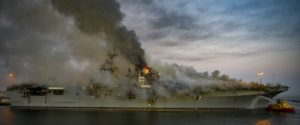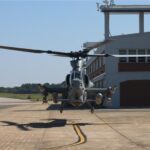
A new Government Accountability Office (GAO) report found the Navy does not have a process to consistently share lessons learned to improve behavior and reduce fire risks during ship maintenance. The April 20 report said while the Navy has a process to collect and analyze lessons learned from fire incidents via several processes, it does not have a process for consistent collecting, analyzing and sharing the lessons across the service. “As a result, the Navy has lost lessons learned over…

 By
By 










